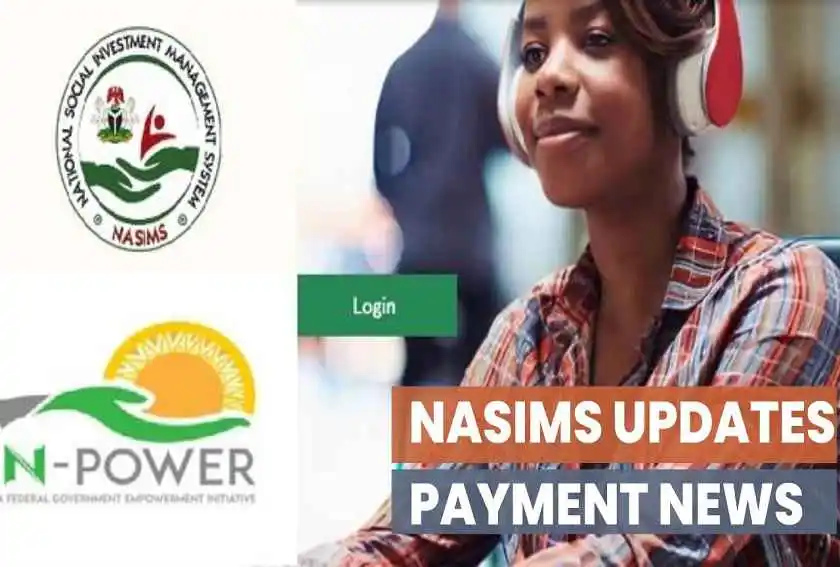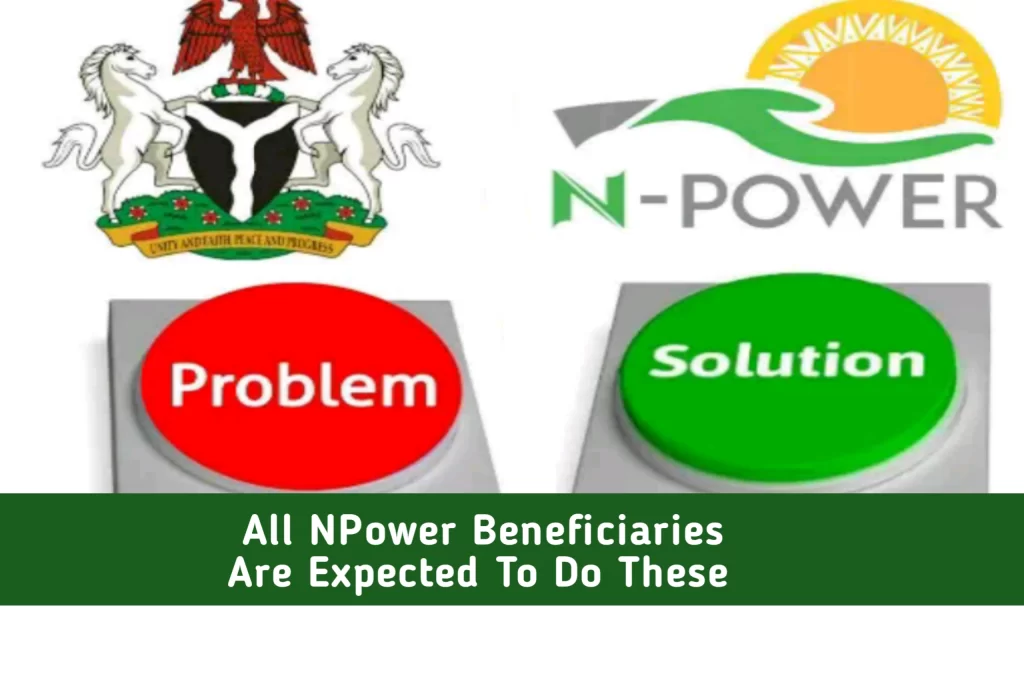Nasims News On Payment Today In Nigeria: A Comprehensive Guide
Nigeria's payment landscape is evolving rapidly, driven by advancements in technology and changing consumer preferences. Nasims News has become a go-to source for updates and insights into the latest payment trends, systems, and innovations in the country. As the financial sector embraces digital transformation, staying informed about payment methods in Nigeria is more important than ever.
In this article, we will delve into the world of payment systems in Nigeria, covering everything from traditional banking to modern fintech solutions. Whether you're a business owner, an entrepreneur, or a consumer looking to understand the payment ecosystem better, this guide will provide valuable insights to help you make informed decisions.
From mobile money platforms to blockchain-based solutions, the payment landscape in Nigeria is diverse and dynamic. Nasims News plays a critical role in keeping stakeholders updated with the latest developments, ensuring that everyone stays ahead of the curve in this ever-changing financial environment.
Read also:How Did Andrea Bocelli Lose His Eyesight The Inspiring Story Behind The Legendary Tenor
Understanding Nigeria's Payment Ecosystem
Nigeria's payment ecosystem is a complex network of traditional and modern payment systems. According to the Central Bank of Nigeria (CBN), the country has seen a significant increase in digital transactions over the past decade. This growth is fueled by increased internet penetration, smartphone adoption, and the rise of fintech companies.
Traditional Banking Systems in Nigeria
Traditional banking remains a cornerstone of Nigeria's payment infrastructure. Banks offer a wide range of services, including:
- ATM withdrawals
- Bank transfers
- Cheque payments
- Point-of-sale (POS) terminals
Despite the rise of digital solutions, many Nigerians still rely on traditional banking methods for their financial transactions.
Emerging Digital Payment Solutions
The emergence of digital payment solutions has transformed the way Nigerians handle transactions. Some of the most popular digital payment methods include:
- Mobile money platforms like Paga and OPay
- Online payment gateways such as Paystack and Flutterwave
- Blockchain-based payment systems
These platforms offer convenience, speed, and security, making them increasingly attractive to consumers and businesses alike.
The Role of Nasims News in Payment Updates
Nasims News has established itself as a reliable source of information on payment systems in Nigeria. By providing timely updates and in-depth analysis, Nasims News helps stakeholders navigate the complexities of the payment landscape.
Read also:How To Ssh To Raspberry Pi Behind A Firewall On Windows 10 Safely
Latest Payment Trends Highlighted by Nasims News
In recent months, Nasims News has covered several key trends shaping Nigeria's payment ecosystem:
- The growing adoption of mobile money platforms
- Increased use of QR code payments
- Expansion of fintech services in rural areas
These trends reflect a broader shift towards digitalization in Nigeria's financial sector.
Challenges in the Payment System
While the payment landscape in Nigeria is evolving positively, several challenges remain. Nasims News frequently highlights issues such as:
- Cybersecurity threats
- Regulatory compliance
- Financial inclusion for underserved populations
Addressing these challenges is crucial for ensuring the long-term success of Nigeria's payment systems.
Regulatory Framework for Payments in Nigeria
The Central Bank of Nigeria (CBN) plays a pivotal role in regulating payment systems in the country. The regulatory framework is designed to ensure the safety, efficiency, and inclusivity of financial transactions.
Key Regulations Governing Payments
Some of the key regulations that govern payment systems in Nigeria include:
- Payment System Vision 2020
- Electronic Payments and Collections Regulations
- Financial Inclusion Strategy
These regulations aim to foster innovation while maintaining the integrity of the financial system.
Impact of Regulations on Payment Providers
Payment providers in Nigeria must adhere to strict regulatory requirements. This ensures that they operate within legal boundaries and offer secure services to their customers. Compliance with regulations is essential for building trust and credibility in the payment ecosystem.
Mobile Money Platforms Revolutionizing Payments
Mobile money platforms have become a game-changer in Nigeria's payment landscape. These platforms allow users to perform financial transactions using their mobile phones, eliminating the need for physical bank branches.
Popular Mobile Money Platforms in Nigeria
Some of the most widely used mobile money platforms in Nigeria include:
- Paga
- OPay
- Baxi
These platforms offer a range of services, from money transfers to bill payments, making them indispensable for many Nigerians.
Benefits of Mobile Money
The benefits of mobile money platforms are numerous:
- Accessibility for unbanked populations
- Cost-effectiveness compared to traditional banking
- Convenience and speed of transactions
As mobile money continues to gain traction, it is reshaping the financial landscape in Nigeria.
Blockchain and Cryptocurrency in Payments
The rise of blockchain technology and cryptocurrencies has opened new possibilities for payment systems in Nigeria. While still in its early stages, this technology has the potential to revolutionize how financial transactions are conducted.
How Blockchain Works in Payments
Blockchain technology provides a decentralized ledger for recording transactions. This ensures transparency, security, and immutability of financial records. Some of the key features of blockchain in payments include:
- Reduced transaction fees
- Real-time cross-border payments
- Enhanced security measures
These advantages make blockchain an attractive option for both consumers and businesses.
Challenges Facing Cryptocurrency Adoption
Despite its potential, cryptocurrency adoption in Nigeria faces several challenges:
- Regulatory uncertainty
- Lack of consumer awareness
- Volatility in cryptocurrency prices
Addressing these challenges will be key to unlocking the full potential of blockchain-based payment systems in Nigeria.
Financial Inclusion and Payment Systems
One of the primary goals of Nigeria's payment ecosystem is to promote financial inclusion. By providing access to financial services for underserved populations, payment systems can help reduce poverty and stimulate economic growth.
Initiatives Promoting Financial Inclusion
Various initiatives have been launched to promote financial inclusion in Nigeria:
- Agent banking networks
- Mobile money services in rural areas
- Government-led financial inclusion programs
These initiatives aim to bring financial services to remote and underserved communities, ensuring that everyone has access to the tools they need to succeed financially.
Impact of Financial Inclusion on Economic Development
Financial inclusion has a significant impact on economic development. By enabling more people to participate in the formal financial system, Nigeria can achieve:
- Increased savings and investment
- Improved access to credit
- Enhanced economic stability
These outcomes contribute to a stronger and more resilient economy for all Nigerians.
Future Trends in Payment Systems
The future of payment systems in Nigeria looks promising, with several emerging trends set to shape the landscape:
- Increased adoption of artificial intelligence in payments
- Growth of e-commerce and digital wallets
- Expansion of blockchain-based solutions
As technology continues to evolve, Nigeria's payment ecosystem will become even more dynamic and innovative.
Conclusion
In conclusion, Nigeria's payment landscape is undergoing a transformative phase, driven by advancements in technology and changing consumer behaviors. Nasims News plays a vital role in keeping stakeholders informed about the latest developments in the payment ecosystem. By understanding the various payment methods available and staying updated on emerging trends, Nigerians can make informed decisions about their financial transactions.
We invite you to share your thoughts and experiences with Nigeria's payment systems in the comments below. Additionally, feel free to explore other articles on our website for more insights into the world of finance and technology. Together, we can shape a brighter future for Nigeria's payment ecosystem.
Table of Contents
- Understanding Nigeria's Payment Ecosystem
- Traditional Banking Systems in Nigeria
- Emerging Digital Payment Solutions
- The Role of Nasims News in Payment Updates
- Latest Payment Trends Highlighted by Nasims News
- Challenges in the Payment System
- Regulatory Framework for Payments in Nigeria
- Mobile Money Platforms Revolutionizing Payments
- Blockchain and Cryptocurrency in Payments
- Financial Inclusion and Payment Systems
- Future Trends in Payment Systems
- Conclusion
Article Recommendations


